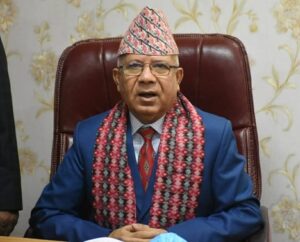Former Nepalese PM Madhav Kumar Nepal faces corruption charges
- KATHMANDU – Former Prime Minister Madhav Kumar Nepal has been formally indicted in a corruption case filed by the Commission for the Investigation of Abuse of Authority (CIAA) in Nepal. This marks a historic moment, as he is the first former prime minister to be charged by the CIAA for corruption.

The charges stem from the Patanjali land scam, in which officials allegedly misused exemptions to Nepal’s land ceiling laws for personal gain. The CIAA has accused 93 individuals, including former ministers and high-ranking officials, of illegally facilitating land transactions. Nepal himself is facing a demand for Rs 185.8 million in compensation.
The corruption allegations suggest that state-owned land was improperly registered under private entities, allowing powerful figures to profit from land deals that should have been restricted under Nepal’s land ceiling policies. Investigators argue that Nepal, as prime minister at the time, played a role in approving these exemptions.
Nepal has strongly denied the allegations, calling them politically motivated and aimed at tarnishing his reputation. He argues that the charges are an act of retaliation rather than genuine anti-corruption efforts. His party, CPN (Unified Socialist), has defended him, claiming that the case is a selective attack on opposition figures.
This indictment comes at a time when Nepal’s political landscape is already fragile, with widespread concerns over corruption, governance, and judicial integrity. Many observers believe this case will test the Nepalese justice system’s ability to fairly prosecute high-ranking officials while avoiding political bias.
The case has sparked heated discussions among political analysts and the general public. Some see the indictment as a step forward in Nepal’s fight against corruption, holding powerful figures accountable for past misconduct. Others fear that it may be used as a political weapon to sideline opponents or distract from other governance failures.
Following the filing of the corruption case by the CIAA, Nepal’s position as lawmaker has been suspended.
Nepal’s legal battle is likely to be lengthy, and its outcome could reshape public trust in anti-corruption mechanisms. If found guilty, he could face severe financial penalties and damage his political career, but if acquitted, the case might further deepen skepticism about the integrity of Nepal’s judicial process.

